| |
|
Sunday, May 18 Community Israel Independence CelebrationWednesday, May 28 JFS~Ellen Saks lecture on mental illness
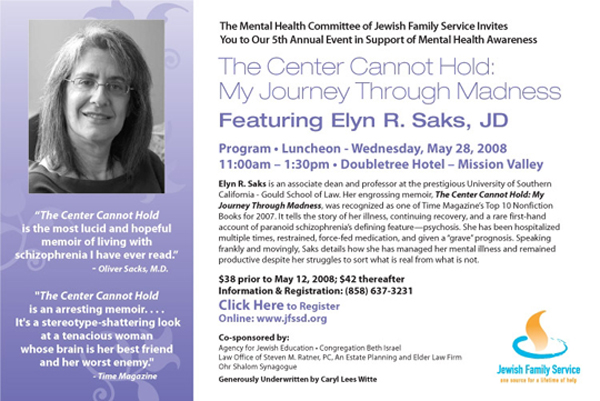
WEDNESDAY, JULY 23-MONDAY, AUGUST 4 Temple Solel trip to Israel


FROM THE SIDELINES
Israel's brightening diplomatic picture
By Dow Marmur
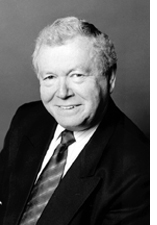 JERUSALEM—“All the nations surround me…. they blockade me.” We say these words when we recite the Hallel Psalms, as we do on Pesach. It feels like that sometimes in Israel. Perhaps that’s why so many Israelis go on vacation to faraway lands. But politically it isn’t like that. As we commemorate our Egyptian slavery it’s essential that we also celebrate our liberation. Here are some reasons for the latter: JERUSALEM—“All the nations surround me…. they blockade me.” We say these words when we recite the Hallel Psalms, as we do on Pesach. It feels like that sometimes in Israel. Perhaps that’s why so many Israelis go on vacation to faraway lands. But politically it isn’t like that. As we commemorate our Egyptian slavery it’s essential that we also celebrate our liberation. Here are some reasons for the latter:
The United States remains committed to Israel. Even if the (perhaps) less-than-enthusiastic Obama becomes President, Congress and the American people will make sure that the Jewish state isn’t harmed by American policies. Whatever reservations we may have about the evangelicals, their political backing of Israel is an important asset.
And whatever we may think of Berlusconi and his politics, he’s a staunch supporter of the State of Israel. Italy is an important voice in shaping European Union policies. He’s not alone. The recent visits in Israel by the Chancellor of Germany and the Prime Minister of Poland assured us of their countries’ support. The president of France has declared his support, too. Together with US President George W. Bush and many other political leaders in the world, he’s expected here soon to mark Israel’s 60th anniversary. Though several of the smaller countries – Norway, Sweden and others - remain a nuisance when it comes to Israel, it’s the big ones that really count.
With the United States and much of Europe on its side, Israel is in much better diplomatic shape than before. For there are also many other countries, including some Arab states, that are on Israel’s side. Foreign Minister Livni’s recent visit to Qatar strengthened existing discreet ties with the Gulf States, perhaps not because they love Israel, but because they have common enemies: Iran, Hezbollah, Hamas. That may be enough for cooperation, though not yet enough for open friendship.
 Of course, we mustn’t ignore the enemies of the State of Israel and of the Jewish people. Nevertheless the progress that Israel has made in the six decades of its existence, even on the diplomatic front, is remarkable. Much of it is reflected in its robust economy greatly aided by foreign investment. Israel may even be better equipped than most to weather the expected economic storm currently on the horizon. Of course, we mustn’t ignore the enemies of the State of Israel and of the Jewish people. Nevertheless the progress that Israel has made in the six decades of its existence, even on the diplomatic front, is remarkable. Much of it is reflected in its robust economy greatly aided by foreign investment. Israel may even be better equipped than most to weather the expected economic storm currently on the horizon.
All this is obvious to the world, except, it appears, to a lot of Jews in the Diaspora. There most of us, especially outside the United States, still seem to need to present ourselves as victims. Many of our leaders may encourage it in the belief that the more isolated and vulnerable Jews feel, the more they’ll seek affiliation with and support for Jewish institutions. Presenting Israel as a victim is seen as good for fundraising.
Suspecting that this kind of attitude may have the opposite effect on young Jews many Jewish organizations tend to pay special attention to keeping up the sense of victimhood in the next generation. The harassment of Jews by Muslim students and their left-wing sympathizers on the campuses of universities throughout the Western world provide some of the arguments for enlisting the young. All this is not illegitimate, but wouldn’t it be much healthier to concentrate on the positive reasons for being Jewish?
Without wishing to deny or minimize the reality of the perennial enmity to Jews in many circles, it’s nevertheless essential to be mindful of the many friends we’ve in the world. Vigilance is essential, but paranoia is a disease we must protect ourselves against.


THE VIEW FROM JINSA
Hamas made a goat of Jimmy Carter
By Shoshana Bryen
 WASHINGTON, D.C.—Generalissimo Franco is still dead. Excuse the old Saturday Night Live reference, but it is simply isn't news to find out that Hamas still doesn't plan to recognize Israel. For another throwback, remember then-Rep. Pete McCloskey coming out of a bunker in Beirut with what purported to be Arafat's signature under a line written in English saying Yasser accepted UN Resolution 242. WASHINGTON, D.C.—Generalissimo Franco is still dead. Excuse the old Saturday Night Live reference, but it is simply isn't news to find out that Hamas still doesn't plan to recognize Israel. For another throwback, remember then-Rep. Pete McCloskey coming out of a bunker in Beirut with what purported to be Arafat's signature under a line written in English saying Yasser accepted UN Resolution 242.
Like McCloskey, Jimmy Carter announced a "breakthrough" on behalf of one of Israel's enemies. He said they said "they would accept a Palestinian state on the 1967 borders" and he said they "would accept the right of Israel to live as a neighbor in peace" provided the Palestinians could vote on both in a referendum. Hamas leader Khalid Mashaal corrected him on al Jazeera. "We accept a (Palestinian) state on the (1967 lines) with Jerusalem as capital, real sovereignty and full right of return for refugees, but without recognizing Israel."
It is odd to cite the State Department without comment, but here is State Department Deputy Spokesman Tom Casey: (It is clear that) "nothing has changed in terms of Hamas' basic views about Israel and about peace in the region... I think if you look back at the history of the rhetoric from Hamas, you see... language about truces and other kinds of issues. But the bottom line is, Hamas still believes in the destruction of the state of Israel... it's pretty hard to see how Hamas becomes any kind of legitimate partner for Israel or for President Abbas, for that matter."
 So it would seem clear that Carter, like McCloskey, should be the goat. But an astute reader in Texas (we have many astute readers in Texas) wrote in advance of this report: "When you properly vilify Carter, think of this. Is it more damaging to hug and kiss Hamas or supply it fuel and food to make war against you? (Israel is) the only country I know that supplies fuel and necessary supplies to people who are trying to kill them. Can we blame Carter alone?" So it would seem clear that Carter, like McCloskey, should be the goat. But an astute reader in Texas (we have many astute readers in Texas) wrote in advance of this report: "When you properly vilify Carter, think of this. Is it more damaging to hug and kiss Hamas or supply it fuel and food to make war against you? (Israel is) the only country I know that supplies fuel and necessary supplies to people who are trying to kill them. Can we blame Carter alone?"
Probably not.
JINSA's view is that terrorist organizations really do believe what they say they believe and want what they say they want. It is patronizing to think Hamas - or Iran or al Qaeda or Hezbollah, or North Korea for that matter - can be talked or bribed out of positions around which they have coalesced their power.
One reason Hamas is rising in popularity in the West Bank as well as Gaza is Palestinians believe it means what it says, and they do not trust Fatah. We believe it too, and don't understand what appears to be the Israeli position that if Israel provides food, water, money (it is paying Fatah and Fatah is transferring money to Hamas to pay salaries in Gaza) to the Palestinians while Hamas is in control, running the propaganda machine and importing ever-more sophisticated weapons, Hamas will somehow stop being in control and Palestinians who do not desire the destruction of Israel will come to power.
Carter is the goat; he advanced the standing of Hamas and lied about it afterward. But Hamas is truly unacceptable and unlikely to be changed by bribery, cajolery or threat. Generalissimo Franco is still dead. So what good is it for Israel to absorb terrible blows (a four-year-old boy was injured yesterday near Sderot) while waiting for the news to change?


THE JEWISH CITIZEN
Book on Golda Meir trashes Shimon Peres
Golda by Elinor Burkett;HarperCollins, 2008, 443 pages including notes, bibliography and index.
By Donald H. Harrison
  SAN DIEGO—First, out with my bias. I’m a fan of Israel’s President Shimon Peres. So when I see him being trashed, as he is in this biography of Golda Meir, I immediately refer to the endnotes. Where did this stuff come from? The answer is that the biography was drawn from third-party interviews, some archival material and for the most part the writings of other historians and journalists. There is a lot of recycled material in other words. Why no interview with Peres? Did she request one? Did he turn her down? SAN DIEGO—First, out with my bias. I’m a fan of Israel’s President Shimon Peres. So when I see him being trashed, as he is in this biography of Golda Meir, I immediately refer to the endnotes. Where did this stuff come from? The answer is that the biography was drawn from third-party interviews, some archival material and for the most part the writings of other historians and journalists. There is a lot of recycled material in other words. Why no interview with Peres? Did she request one? Did he turn her down?
The picture one gets of Peres as a young man is that he was an over-achieving, reckless adventurer who somehow managed to win David Ben-Gurion’s admiration, and who cut numerous defense and security deals with foreign leaders without most Israeli officials, other than B-G , knowing about them. Furthermore, she paints a picture of a man who jealously guarded his access to the prime minister, even to the point of trying to exclude Meir from high level decision making while she was foreign minister.
In Burkett’s account, Moshe Dayan was another member of Ben-Gurion’s boys club, yet Meir managed to make peace with Dayan. In contrast, according to Burkett, Meir detested Peres all the way to her death.
It is within the realm of possibility that all this is accurate. Another possibility is that Burkett’s conclusions are based on her secondary sources settling old scores. Burkett not only is a journalist with wide experience, but also has a PhD in history, so I am certain she would understand why I would have preferred to see more primary documents and fewer secondary ones to substantiate her account.
Like the message one receives at the end of the line in the parlor game of “telephone,” what we read in Burkett’s biography about Meir and Peres may deviate considerably from what actually was said at the beginning of the chain.
Having raised these cautionary notes, I still would recommend this book. It flows well, brings some long-forgotten, or at least half-remembered, events back to life, and provides us with an interesting hypothesis about Meir’s character: Pogroms and anti-Semitism of her childhood in Pinsk were imprinted on her consciousness. The raging mobs who made her parents cower later morphed, in her mind, into Arabs. Knowing that whatever she did was unlikely to please her mother, Meir developed stubbornness—a trait that often characterized her negotiations with party leaders. She could take rejection, come back for more, and eventually prevail—whether it was on a kibbutz whose members initially ridiculed the new American, or in the Ben-Gurion-Peres-Dayan boys club. Once nearly star-struck in her loyalty to Ben-Gurion, she helped engineer his political downfall, and eventually rose herself to the pinnacle of power in Israel.
If Burkett is hard on Meir at all, it is for the way she put the needs of her family—a husband, daughter and son—always second, so that her being home was a rare event, and being home and awake enough to enjoy her children even rarer. In Israel, where the infighting of internal politics sometimes seemed tougher than the fighting with external enemies, ability to withstand long hours, endless argumentation, stress, and fatigue, was the coin of the realm.
We read that Meir—not unlike men in power—had extramarital affairs, although she apparently tried to be more discreet about it. And though she fought, and triumphed, over the boys, she remained a woman, who knew well how to take advantage of her femininity and was impatient with “feminists.”
Or so Burkett’s sources told her.
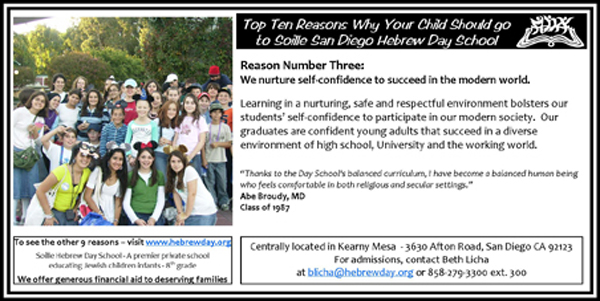




ADVENTURES IN SAN DIEGO JEWISH HISTORY
Editor's Note: We are reprinting a series of articles that the Southwestern Jewish Press ran in July 1949 providing the history and purpose of numerous Jewish organizations in San Diego. If you have historical topics about the San Diego Jewish community you would like us to explore, please e-mail your suggestions to editor Don Harrison at sdheritage@cox.net
Tifereth Israel Men’s Club
By H(enry) Bowman, publicity chairman
From Southwestern Jewish Press, July 1949, pages 1, 7
The Tifereth Israel Mens Club (Tifisra) formed earlier this year has been attracting new members because of its outstanding programs which have been both cultural and entertaining.
The club has held election of officers and Board of directors who are as follows:
Al Newman, President.
Moe Berlin, First Vice-Pres.
Arthur Gardner, Second V.P.
Moe Hershey, rec. Secy.
Ben Levenson, Financial Secy
Sam Druskin, Treasurer
Board of directors elected for a term of two years are:
Henry Bowman and Sidney Newman.
Elected for a term of one year are:
Moss Addleson, Max Brody, William Gordon, Ben Mash, Paul Nestor and Its Penter.
The club was formed with the following objectives:
To bring about a closer relationship among its members through social activities and mutual interest. This has been partially accomplished by brining the members together at our monthly meetings, by entertaining programs and the social activities which follow each meeting.
To perpetuate the doctrines and precepts of our Jewish Law.
To aid in the future development and welfare of the synagogue. It is hoped that this will be accomplished in the future by fund raising projects and the assistance of our members in the many problems arising in the operation of the synagogue. It is also hoped to assist financially in the proposed new center building and Hebrew school. To encourage activities for Jewish you . In this connection, they have already sponsored a baseball club for Jewish Youth. In this connection, Youth League which meets at least once a month, where boys and girls of the community can meet together and have a good time under the supervision of a qualified chaperone.
To participate in non-sectarian, philanthropic, and communal affairs.
To cooperate with all organizations working for better relations among various groups. It is proposed to hold joint meetings with other organizations in the city to improve relations among these groups and to give our assistance in all communal affairs.
Membership is open and is not confined to members of the synagogue. Future programs which are proposed include a moonlight boat ride, Father and Son Dinner, various speakers, a Forum and other such entertainment events for social purposes.
The club meets the first Tuesday of each month. The next meeting of the Men’s Club will be held on Tuesday, July 5, at 8:30 p.m. at the Tifereth Israel Synagogue. There will be a very short business session followed by Judge A.F. Molina, Municipal Court Judge, who will be the guest speaker of the evening. Judge Molina will speak of the humorous side of his experiences on the Bench. A social hour will follow the guest speaker. Refreshments will be served.
The Men’s Club extends a cordial invitation to all its members, all members of the Congregation together with their wives and friends.
J.C.R.A. (Jewish Consumptive Relief Association)
By Ann B. Brooks
From Southwestern Jewish Press, July 1949, pages 1, 2
The annual picnic and package party will be held on Sunday, August 7. A complete special picnic plate lunch, including beverage an dessert will be served from 12 noon until late afternoon at a low charge. Guests who do not desire a plate lunch may select luncheon dishes from the buffet table.
Committees will report in full at the next meeting, which will be held at Temple Center the third Tuesday in July. The July 19 meeting will feature a non-profit luncheon and cards.
In recognition of the City of Hope’s tradition of free non-sectarian care for needy tuberculars, the Hotel and Restaurant Employees and Bartenders International Union has indorsed a two year campaign to establish a wing at the Medical Center in the name of the union. Other unions that have sponsored buildings are the Bakery and Confectionary Workers, the international Ladies Garment Workers and the Amalgamated Clothing Workers of America.
Yo-Ma-Co (Young Married Couples)
The Yo-Ma-Co Club is now celebrating its thirteenth anniversary. Little did the four couples who founded the club back in 1936, dream that their fledgling would grow into the lusty, well established organization it has become today. We now number 36 couples, and have behind us a solid tradition of community social activity and community service.
The club was founded for the purpose of providing a congenial atmosphere for young couples to become acquainted with one another and to provide a means for newcomers to enter into Jewish communal life. These aims have been accomplished with great success. A roster of our members past and present would include names from every segment of the San Diego Jewish community.
The club is open to membership to any Jewish couple whose average age does not exceed 37 years. We meet the 2n and 4th Wednesday of each month at Landis Street Recreation Hall, Highland and Landis Sts. At 9 o’clock. Visitors are welcome.
Newly elected officers are: Ray Lowitz, president; Frank Black, treasurer; Charlotte Frelander, recording secretary; Florence Pearl, corresponding secretary; Dave Cohen, membership secretary; Jim Holmes, Sgt. At Arms.
The new officers will be formally ushered into office at our regular semi-annual installation in the Don Room of the El Cortez Hotel. This promises to be a gay affair in the spirit of 1849.

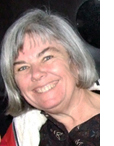
 Nancy Harrison Nancy Harrison
cruise & tour specialist
(619) 265-0808
Not only better prices, but excellent, caring service!

 |
Balloon Utopia
Sandi Masori
619 339 8024
 |
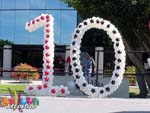
! |
 |

SAN DIEGO JEWISH WORLD THE WEEK IN REVIEW
Donald H. Harrison in Escondido, California: 'Fifth son' at our seders—the captive soldier
Sheila Orysiek in San Diego: Matzo sandwich: is the Earl laughing?
Fred Reiss in Winchester, California: Evangelicals: good or bad for the Jews?
Adventures in San Diego History: The Southwestern Jewish Press in July 1949 printed articles detailing the histories and purposes of various Jewish organizations in San Diego. Today we reprint the stories about Hadassah and the Junior Section of Senior Hadassah.
Carol Davis in La Jolla, California: 33 Variations probes Beethoven's obsession
Ulla Hadar in Kibbutz Ruhama, Israel: Battle to bring, keep water in the Negev
Donald H. Harrison in Jamul, California: On the land-use warpath in rural Jamul
Rabbi Baruch Lederman in San Diego: Rav Henoch Leibowitz dies at 92 in Queens
Dov Burt Levy in Peabody, Massachusetts: A miraculous report from Sderot
Rabbi Leonard Rosenthal in San Diego: Do free people have to attend a seder?
Adventures in San Diego History: The Southwestern Jewish Press in July 1949 printed articles detailing the histories and purposes of various Jewish organizations in San Diego. Today we reprint the stories about Hadassah and the Junior Section of Senior Hadassah.
Carol Davis in San Diego: Speaking of Pharaoh's Egypt: Aida is back
Eran Lerman in Jerusalem: Israel has domestic political chametz which
it would be well to sweep out before Pesach
Rabbi Dow Marmur in Jerusalem: In Israel, water is an issue that is of both technological and theological concern
Sheila Orysiek in San Diego: Chapter Four in the serialization of her novel, Reluctant Martyr
William Propp in La Jolla: David Noel Freedman: an appreciation
Adventures in San Diego History:We begin a series of stories from the 1949 Southwestern Jewish Press in which each Jewish organization was asked to tell its history and activities.
Carol Davis in Coronado, California: If your family made its fortune by theft, would you willingly return the money?
Dow Marmur in Jerusalem: Jimmy Carter's unwelcome benevolence
Ira Sharkansky in Jerusalem: Notes from ever-changing Haggadot
Adventures in San Diego History: San Diego's Jewish community focused in 1949 on the resettlement of refugees in Israel and on aid to needy Jews in San Diego and abroad
Shoshana Bryen in Washington, D.C.: Welcome back, welcome back Berlusconi
Larry Gorfine in San Diego:Jews play prominent roles in S.D. politics
Gary Rotto in Angelus Oaks, California: Debating a professional at a 'big boy' retreat for Jewish leaders at Camp Mountain Chai
Adventures in San Diego History: In 1947, the Jewish community in San Diego was alive with fresh beginnings: A new softball leage, a CARE office, groundbreaking in North Park for Tifereth Israel; a new sefer Torah in Tijuana, and the installation of a Hillel unit at San Diego State
< BACK TO TOP
|
|







 JERUSALEM—“All the nations surround me…. they blockade me.” We say these words when we recite the Hallel Psalms, as we do on Pesach. It feels like that sometimes in Israel. Perhaps that’s why so many Israelis go on vacation to faraway lands. But politically it isn’t like that. As we commemorate our Egyptian slavery it’s essential that we also celebrate our liberation. Here are some reasons for the latter:
JERUSALEM—“All the nations surround me…. they blockade me.” We say these words when we recite the Hallel Psalms, as we do on Pesach. It feels like that sometimes in Israel. Perhaps that’s why so many Israelis go on vacation to faraway lands. But politically it isn’t like that. As we commemorate our Egyptian slavery it’s essential that we also celebrate our liberation. Here are some reasons for the latter: Of course, we mustn’t ignore the enemies of the State of Israel and of the Jewish people. Nevertheless the progress that Israel has made in the six decades of its existence, even on the diplomatic front, is remarkable. Much of it is reflected in its robust economy greatly aided by foreign investment. Israel may even be better equipped than most to weather the expected economic storm currently on the horizon.
Of course, we mustn’t ignore the enemies of the State of Israel and of the Jewish people. Nevertheless the progress that Israel has made in the six decades of its existence, even on the diplomatic front, is remarkable. Much of it is reflected in its robust economy greatly aided by foreign investment. Israel may even be better equipped than most to weather the expected economic storm currently on the horizon.
 WASHINGTON, D.C.—Generalissimo Franco is still dead. Excuse the old Saturday Night Live reference, but it is simply isn't news to find out that Hamas still doesn't plan to recognize Israel. For another throwback, remember then-Rep. Pete McCloskey coming out of a bunker in Beirut with what purported to be Arafat's signature under a line written in English saying Yasser accepted UN Resolution 242.
WASHINGTON, D.C.—Generalissimo Franco is still dead. Excuse the old Saturday Night Live reference, but it is simply isn't news to find out that Hamas still doesn't plan to recognize Israel. For another throwback, remember then-Rep. Pete McCloskey coming out of a bunker in Beirut with what purported to be Arafat's signature under a line written in English saying Yasser accepted UN Resolution 242.  So it would seem clear that Carter, like McCloskey, should be the goat. But an astute reader in Texas (we have many astute readers in Texas) wrote in advance of this report: "When you properly vilify Carter, think of this. Is it more damaging to hug and kiss Hamas or supply it fuel and food to make war against you? (Israel is) the only country I know that supplies fuel and necessary supplies to people who are trying to kill them. Can we blame Carter alone?"
So it would seem clear that Carter, like McCloskey, should be the goat. But an astute reader in Texas (we have many astute readers in Texas) wrote in advance of this report: "When you properly vilify Carter, think of this. Is it more damaging to hug and kiss Hamas or supply it fuel and food to make war against you? (Israel is) the only country I know that supplies fuel and necessary supplies to people who are trying to kill them. Can we blame Carter alone?" 

 SAN DIEGO—First, out with my bias. I’m a fan of Israel’s President Shimon Peres. So when I see him being trashed, as he is in this biography of Golda Meir, I immediately refer to the endnotes. Where did this stuff come from? The answer is that the biography was drawn from third-party interviews, some archival material and for the most part the writings of other historians and journalists. There is a lot of recycled material in other words. Why no interview with Peres? Did she request one? Did he turn her down?
SAN DIEGO—First, out with my bias. I’m a fan of Israel’s President Shimon Peres. So when I see him being trashed, as he is in this biography of Golda Meir, I immediately refer to the endnotes. Where did this stuff come from? The answer is that the biography was drawn from third-party interviews, some archival material and for the most part the writings of other historians and journalists. There is a lot of recycled material in other words. Why no interview with Peres? Did she request one? Did he turn her down?



 Nancy Harrison
Nancy Harrison



 —
—